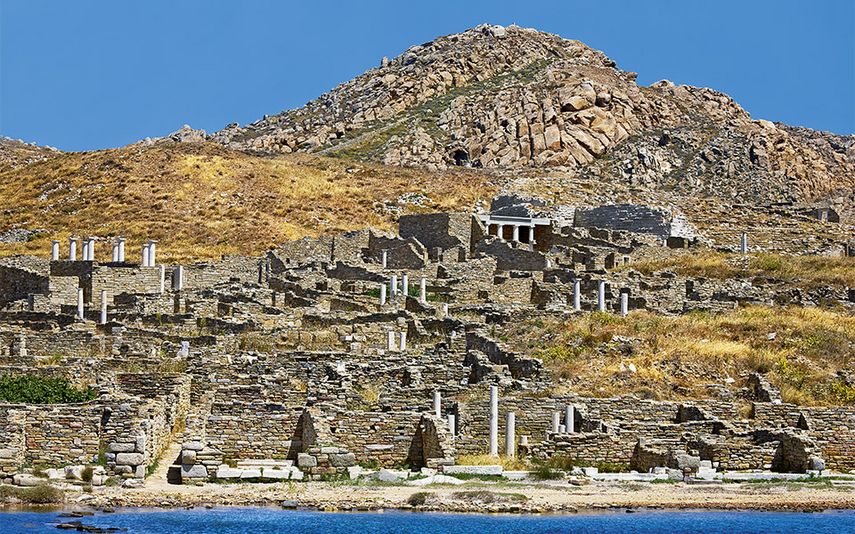- Αρχική
- THE PROGRAM
- ENTRY TO THE PROGRAM: REQUIREMENTS AND PROCEDURES
- FOR THE PSP STUDENTS
- SEMINAR COURSES AND TIMETABLE
-
ACADEMIC STAFF
- SOPHIA ANEZIRI
- VYRON ANTONIADIS
- CHRISTY CONSTANTAKOPOULOU
- NIKOS GIANNAKOPOULOS
- NIKOLAS DIMAKIS
- GEORGIOS FERENTINOS
- CHRYSANTHOS KANELLOPOULOS
- LILIAN KARALI-GIANNAKOPOULOU
- STYLIANOS KATAKIS
- EURYDICE KEFALIDOU
- KONSTANTINOS KOPANIAS
- YIANNIS PAPADATOS
- VASSILIS PETRAKIS
- DIMITRIS PLANTZOS
- LEFTERIS PLATON
- SELINI PSOMA
- GIORGOS VAVOURANAKIS
- SOPHIA ZOUMBAKI
- NEWS AND EVENTS
- CONTACT INFORMATION
PROGRAM STRUCTURE

The duration of study at the Program extends to four semesters, which also includes the time for the preparation of a Postgraduate Diploma Thesis. There exists the possibility of part-time study with a subsequent expansion of the entire duration up to six semesters) or the extension by one semester. These options apply only to specific conditions and are subject to approval by the Department of History and Archaeology.
The Program begins in the winter semester of each academic year. During the entire duration of their study, students are required to select and participate successfully in at least six seminar courses, of which four must belong to the field of their specialization. Up to two of them may be assignments on freely selected topics with different tutors. Courses are taught per week in modern Greek and may include presentation and submission of seminar papers, written or oral examination or other academic exercises, as arranged by each tutor.
During the course of his study, students may consult their Academic Advisor assigned to them at the beginning of their participation to the Program. Academic advisors are placed to consult on academic matters related to the student's participation to the Program.
During the last semester of their studies, the students are engaged in the preparation of their Postgraduate Diploma Thesis on a topic of their interest within their respective field. The thesis is supervised by a member of the academic stuff of the Program.
Participation to any of the above is considered successful if graded at least seven on the decimal scale (7/10 or higher).
The successful participation of all the courses and the defense of the Postgraduate Diploma thesis leads to the award of a Diploma of Postgraduate Studies by the Department of History and Archeology in one of the specializations offered by the Program ("Prehistoric Archaeology", "Classical Archaeology" and "Ancient History").
The Diploma of Postgraduate Studies awarded by the Program corresponds to 120 ECTS. Each seminar that involves the writing of a seminar paper corresponds to 15 ECTS; the Postgraduate Diploma Thesis corresponds to 30 ECTS.
Online Student Portal
https://my-uni.uoa.gr
Through the Portal, students:
- can view the courses offered in the Program
- can be informed about their grades in the seminar courses they participate in
- can sign up for participation in seminar courses offered by the Program
LEARNING OUTCOMES
Upon completion of the Program, students are expected:
• to have proven knowledge and understanding of knowledge areas and subjects that build on and extend and/or reinforce those related to the first cycle of study. At the same time, the program provides the basis or opportunity for originality in the development and/or application of ideas, in the context of research activity.
• to have gained better oversight of the three areas of specialization of the PMS.
• to have delved into the historical and cultural contexts of the periods under consideration.
• to have further developed the critical and research tools required by research methodology, to be able to formulate theoretical questions with clarity and clarity, as well as develop positions whose reasoning is based on logical assumptions that are understandable by specialists and non-specialists alike.
• to have successfully completed a sufficient number of coursework that synthesizes knowledge and requires the handling of complex issues, as well as the formulation of judgments, which include reflection on social, political and cultural issues. These seminar papers require as a condition the application of their knowledge and judgment.
• to be able to use their knowledge and skills to solve theoretical problems and research questions related to the fields of specialization of the Programme.
• to have completed graduate seminar papers and a diploma thesis demonstrating that they have the necessary methodological and research skills and scientific knowledge that allow them to continue their studies to a large extent, independently or even autonomously.